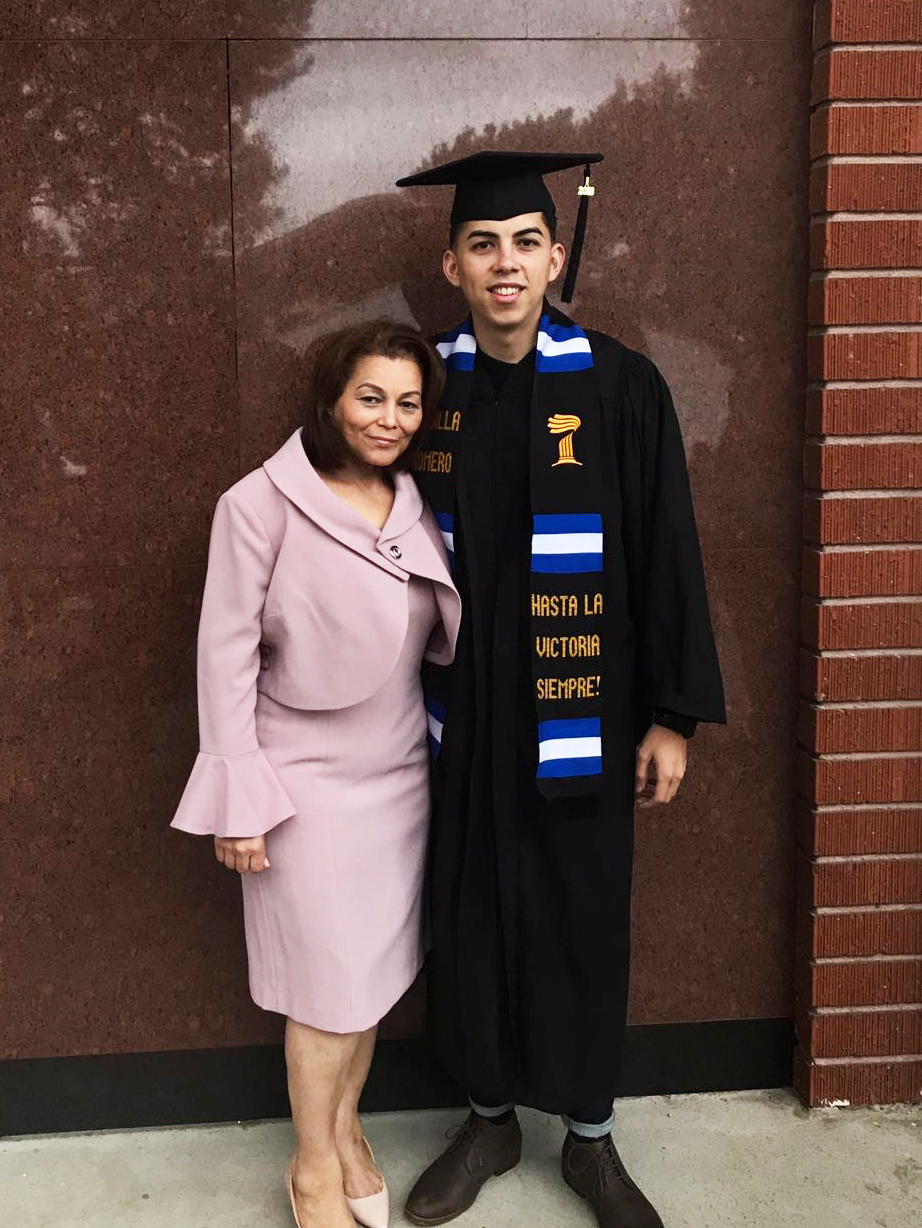
Courtesy of Cristian Padilla Romero
On a Thursday morning in mid-August, Tania Romero was pulled over for a traffic violation in Gwinnett County, Georgia. The next night, the 48-year old mother of four and cancer survivor was taken into Immigration and Customs Enforcement custody and remains there to this day.
This Tuesday, Romero’s son, Cristian Padilla Romero GRD ’24, began an online petition calling for ICE to release his mother, so she can receive necessary medical treatment for her Stage IV oral cancer. Padilla Romero — an undocumented immigrant from Honduras with Deferred Action for Childhood Arrivals status — has retained the services of Georgia attorney Noemi Puntier to file a motion to reopen his mother’s case on humanitarian grounds. Romero is currently held in the privately-run Irwin County Detention Center, where she is awaiting deportation.
“Nobody really deserves to be detained by ICE, but my mom in particular, who’s recovering from cancer and whose health is very fragile at the moment, really needs to be released as soon as possible,” Padilla Romero said in an interview with the News.
The petition, which reached 5,000 signatures just before midnight on Tuesday and had garnered another 7,000 signatures by press time, tells the story of a woman from rural Honduras who immigrated to the United States in the 1990s, where she met Padilla Romero’s father. The petition urges ICE to “be humane” and release Padilla Romero’s mother, so she can adequately recover and pursue a legal path to citizenship. It also provides a template script for phone calls to ICE deportation officer Cesar Ciprian alongside hashtags in support of Romero like #ReleaseTaniaNow and #LibertadParaTania.
Padilla Romero graduated from Pomona College in 2018, where he was a QuestBridge scholar who double-majored in history and Latin American studies. As a college intern, he worked as a paralegal assistant for Immigrant Hope Atlanta, where he provided assistance on cases regarding DACA, special visas and asylum. At Yale, he is pursuing a doctoral degree focusing on the history of 20th-century Latin and Central America.
“[My] mom has worked her whole life as a housekeeper, restaurant dishwasher, and construction worker so that my three siblings and I could have a better life than the one she lived back in Honduras, where she suffered from malnutrition, poverty, and very poor healthcare,” the petition states.
In 2008, ICE issued a removal order for Romero. But according to a Wednesday morning press release issued by Padilla Romero, a Freedom of Information Act inquiry revealed that prior to Romero’s detention, three notices of removal were returned to sender by the U.S. Postal Service — meaning that Romero was never informed of her court appearance. Padilla Romero never learned of the outstanding removal orders until she was detained in August, it said.
The press release claimed that the judicial decision that denied an August motion to reopen Romero’s case was made on “legally indefensible” grounds, given that Romero was not aware of her original court date.
Romero received her cancer diagnosis in 2016. She underwent immediate surgery around her neck and followed up with chemoradiation therapy until late summer 2017. Romero has continued her treatment with medication and physical therapy since, and still meets with oncologists twice a year. While in detention, she was diagnosed with a vitamin B12 deficiency, according to the press release. If she were to be deported, “she would certainly face a decline in her health, if not death,” Padilla Romero wrote in the press release.
Padilla Romero said that his family has been in conversation with Rep. Lucy McBath, D-Ga., — his congressional representative — as well as Graduate School of Arts and Sciences Dean Lynn Cooley, about potential avenues for securing Romero’s release. McBath’s office did not return a request for comment on Wednesday.
In a statement to the News, Cooley wrote that she “stand[s] alongside” the graduate school community in support of Padilla Romero, “who is understandably distressed by his mother’s detention.”
“In August, I wrote a letter of support to the attorney handling his mother’s case,” she said. “I urged the federal court system to grant a stay on her removal and to reopen her case. As a community, we will continue to show support for those students who are concerned about immigration issues affecting them, their families, and their classmates.”
Other graduate students have responded to Padilla Romero’s situation as well.
“We are working to determine how we can best support our colleague during this difficult time, though we’re not yet sure what exactly that will look like,” Carl Rice GRD ’22, a Graduate Student Assembly representative from the history department, wrote in an email to the News. “Some of us have been in communication with Cristian to offer our support to him and see how we can help, but this is still an unfolding discussion.”
Amanda Maddox, press secretary to Sen. Johnny Isakson, R-Ga., stated that while she could not provide comment for privacy reasons, the senator’s office is working to connect with the Romero family. The office of Sen. David Perdue, R-Ga., did not respond to a request for comment. An ICE public affairs officer did not respond to requests for comment.
According to the agency’s website, ICE detained and removed 256,085 people from the U.S. in the 2018 fiscal year.
John Besche | john.besche@yale.edu
Olivia Tucker | olivia.tucker@yale.edu







